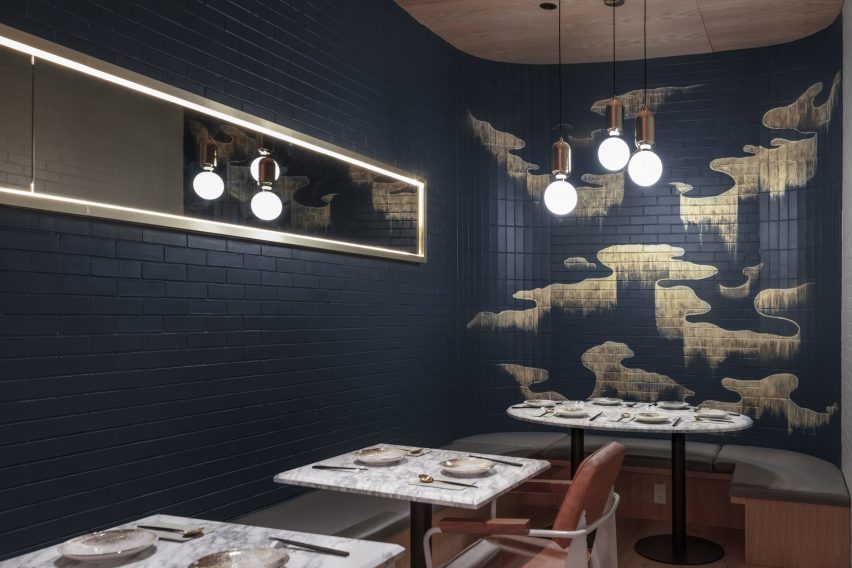
10 restaurants for pigging out in style during Chinese New Year
To celebrate Chinese New Year and the Year of the Pig, we've collected examples of Chinese restaurants with mouth-watering interiors from around the world.
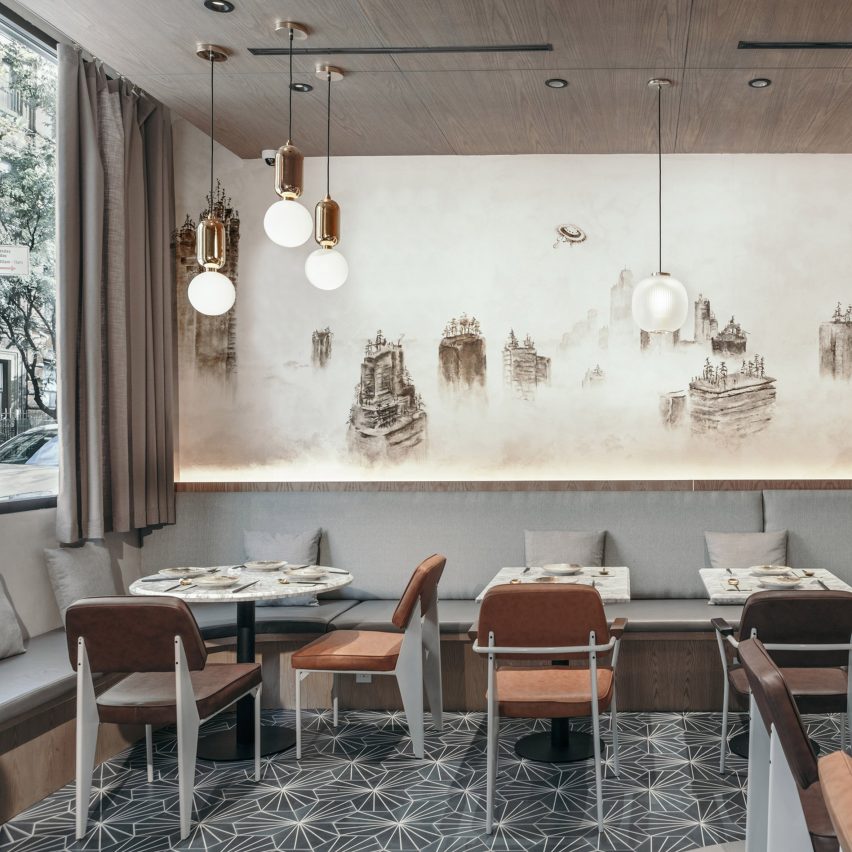
Atlas Kitchen by New Practice Studio
New York firm New Practice Studio designed this restaurant in Manhattan with natural hues, and quirky illustrations on the walls by artist Qiu Anxiong.
Located on the Upper West Side, the eatery features cream walls, a light wood ceiling, pops of teal, and grey tile floors with a white geometric design.
Find out more about Atlas Kitchen ›
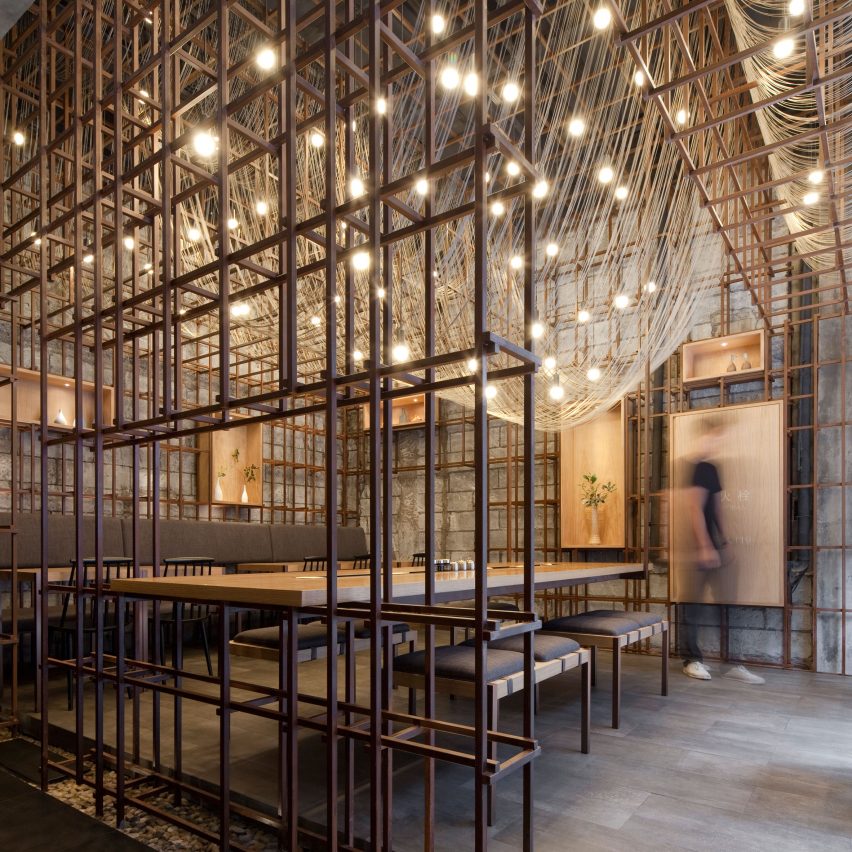
At this noodle bar in Changsha, Shanghai-based Lukstudio reinterpreted a traditional Chinese food-drying rack with a metal grid structure and hanging wires.
The firm's intention was to create "journey of discovery" in the 50-square-metre space as a response to client LongXiaoBao's brief to "change people's expectations of a noodle joint".
Find out more about The Noodle Rack ›
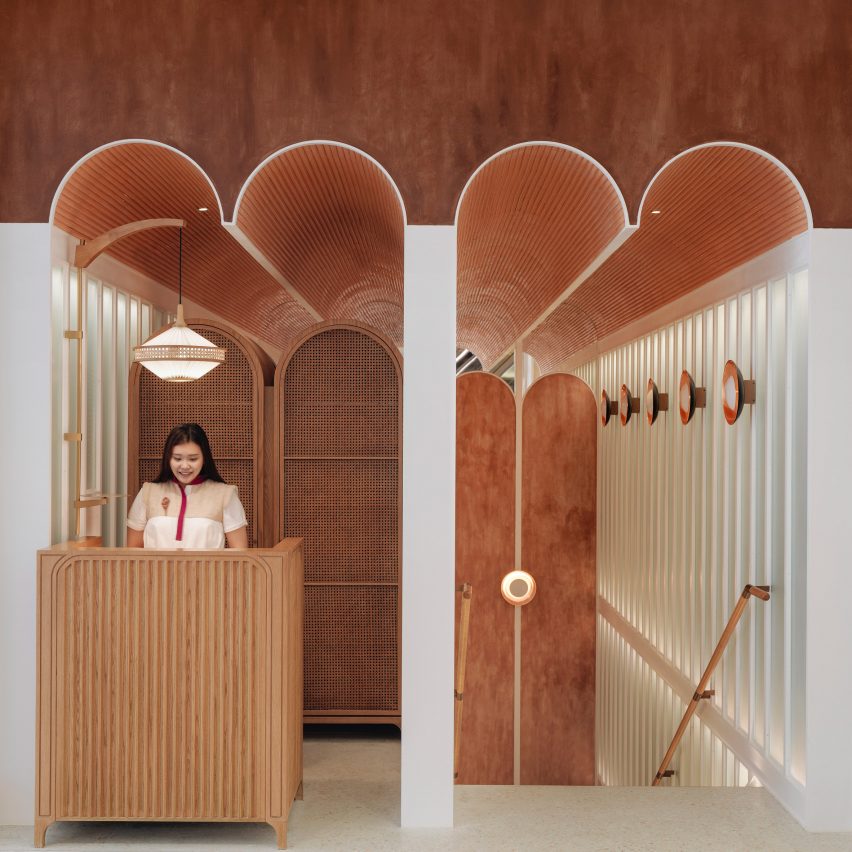
Linehouse completed this contemporary dim-sum restaurant in Hong Kong, taking cues from the life of a cross-cultural pioneer, but also references a retro Chinese canteen in east London.
The restaurant is named after John Anthony – the first Chinese-born man to be naturalised as a British citizen, in 1805 – and features the materials he would have encountered on his journeys with the East India Company. These include hand-glazed tiles, natural and racked renders, terracotta, hand-dyed fabrics and hand-woven wickers.
Find out more about John Anthony ›
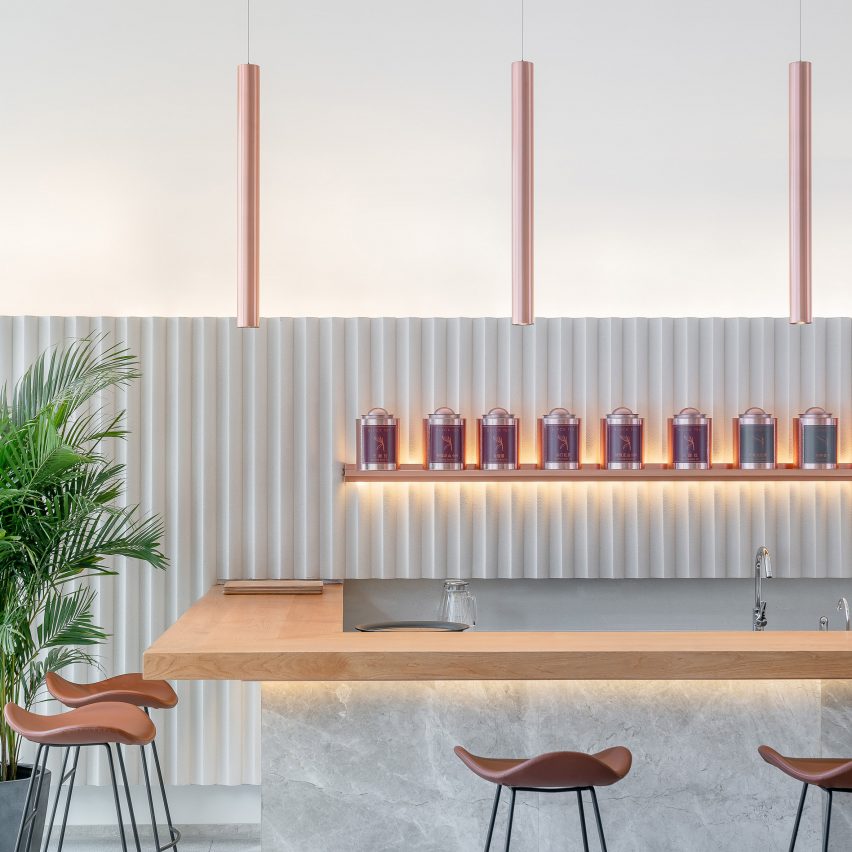
A copper facade frames the grey stone interior of this dining and retail space in Shanghai designed by local firm Office Coastline.
The 198-square-metre venue belongs to lifestyle brand Genshang, and combines a shop, tea bar, dining area and lounge room. A timber and grey stone-clad bar is lined with leather stools and backed by a fluted concrete panel.
Find out more about Genshang ›
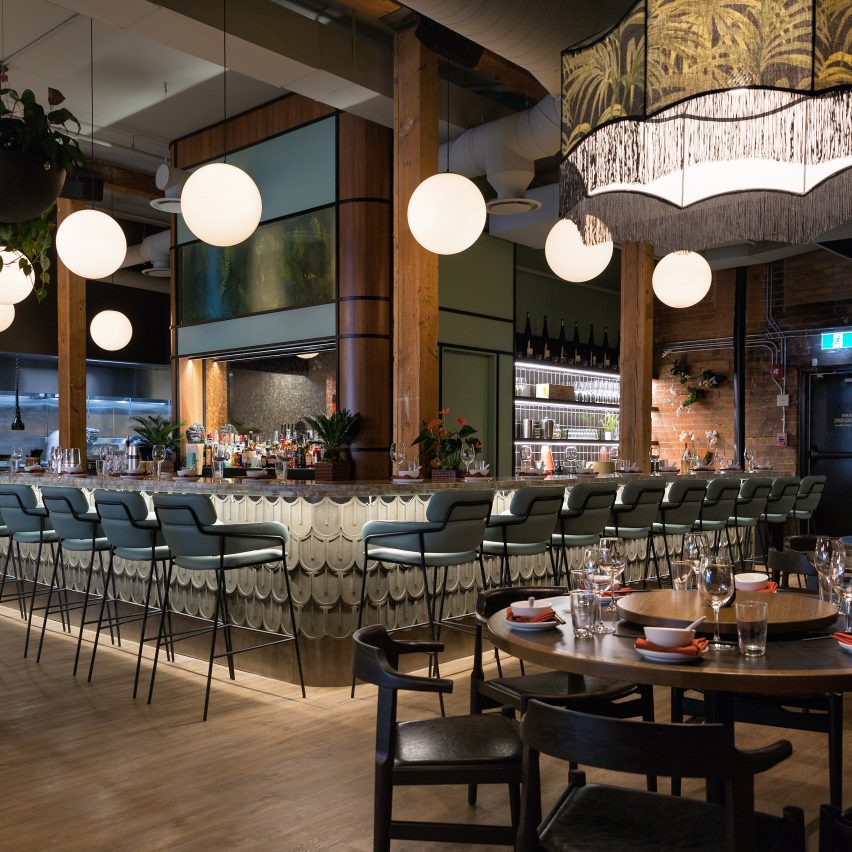
Two Penny by Sarah Ward Interiors
Canadian studio Sarah Ward Interiors looked to China's art-deco era for the colours and motifs at this dim-sum restaurant and basement cocktail bar in Calgary.
The team settled on a scheme based on Shanghai in the 1920s, where the arts movement merged with traditional Chinese motifs to create a hybrid style. Shades of teal and dusty pink are found throughout the restaurant as a nod to this era, on the leather-upholstered banquettes, wall panels and metal mirrors
Find out more about Two Penny ›
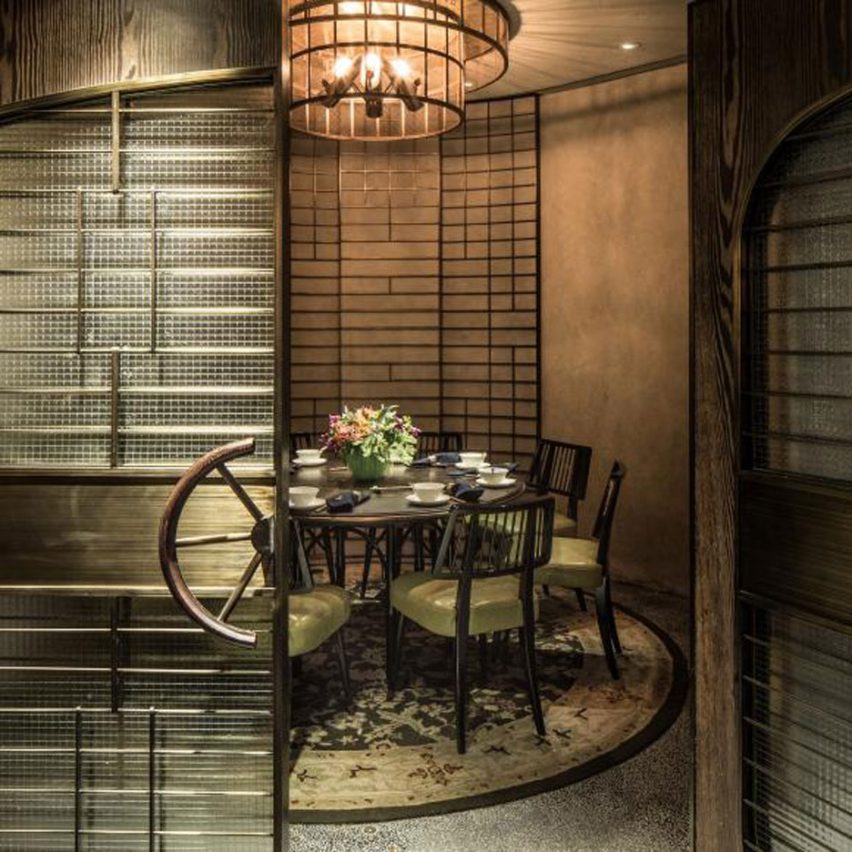
Architect Joyce Wang used styles from throughout Hong Kong's history to design this restaurant in the city, which was named World Interior of the Year 2014.
Throughout the interior, chain and rope reference the area's fishing traditions, while artificial "skylights" mimic daylight in the basement space.
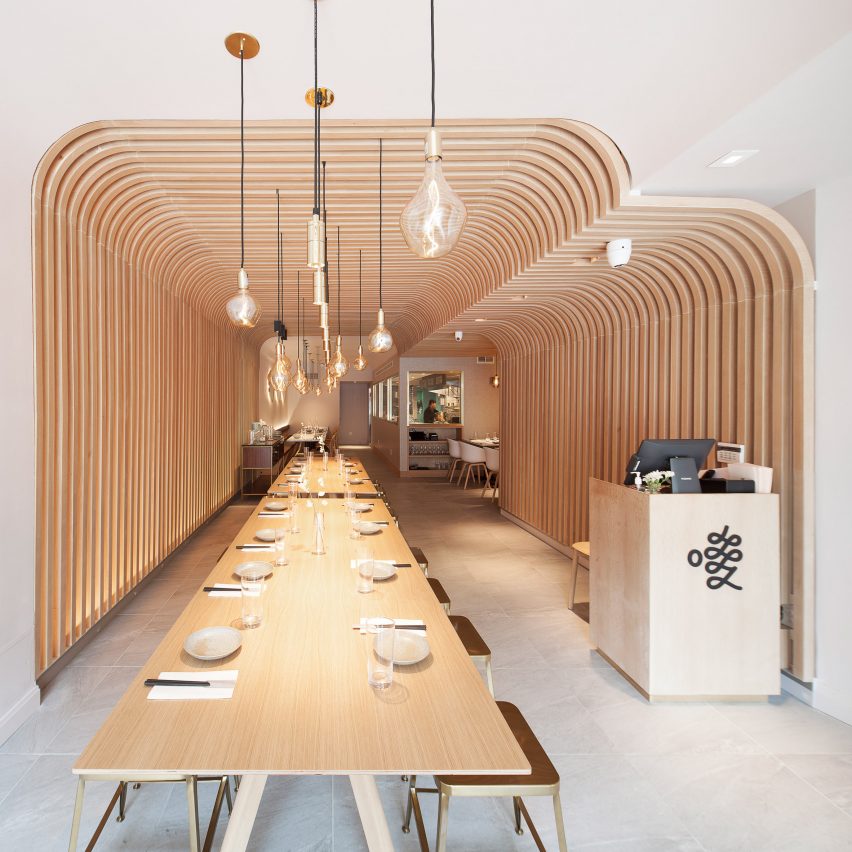
Hunan Slurp by New Practice Studio
Curved slats of laminated wood cover the walls and ceiling of this restaurant in New York's East Village, also by design firm New Practice Studio.
Hunan Slurp is located a slender, linear space at the base of an old brick building. The restaurant – run by chef and artist Chao Wang – serves authentic dishes from the Hunan province, including rice noodle bowls and a range of small plates like frog legs and chicken feet.
Find out more about Hunan Slurp ›
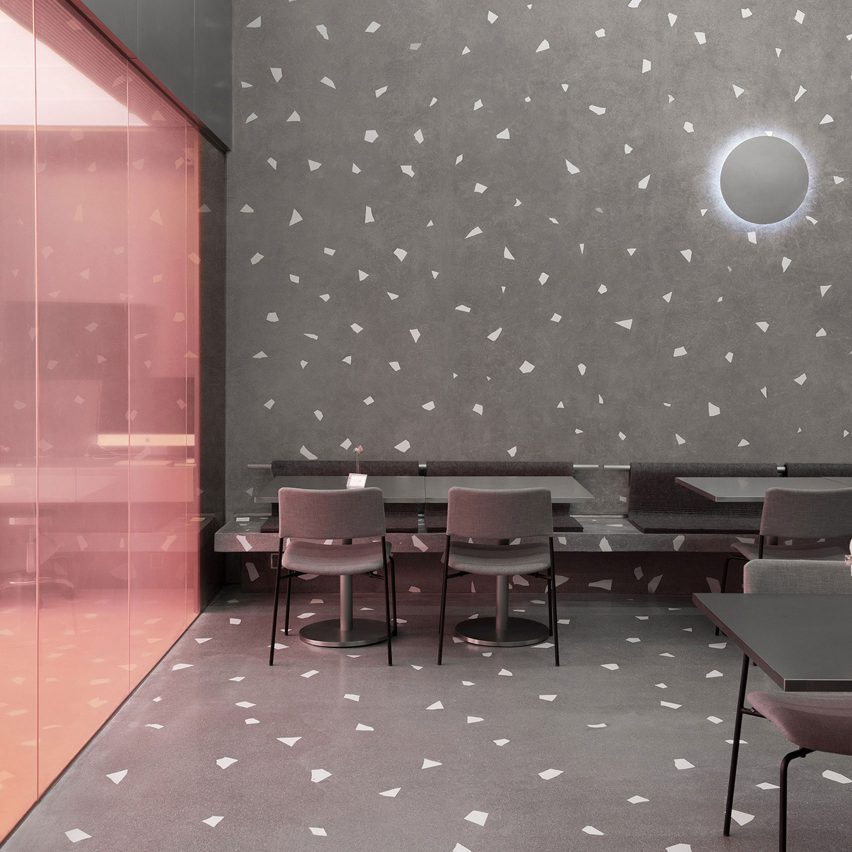
Chinese studio 0321 inserted a rose-tinted box into the front of this restaurant-cum-flower shop in Dongguan, allowing diners and passers-by a glimpse of the blooms inside.
The eatery behind is completed almost entirely in dark grey terrazzo with oversized white aggregate, which the architects used to create an "extreme visual experience".
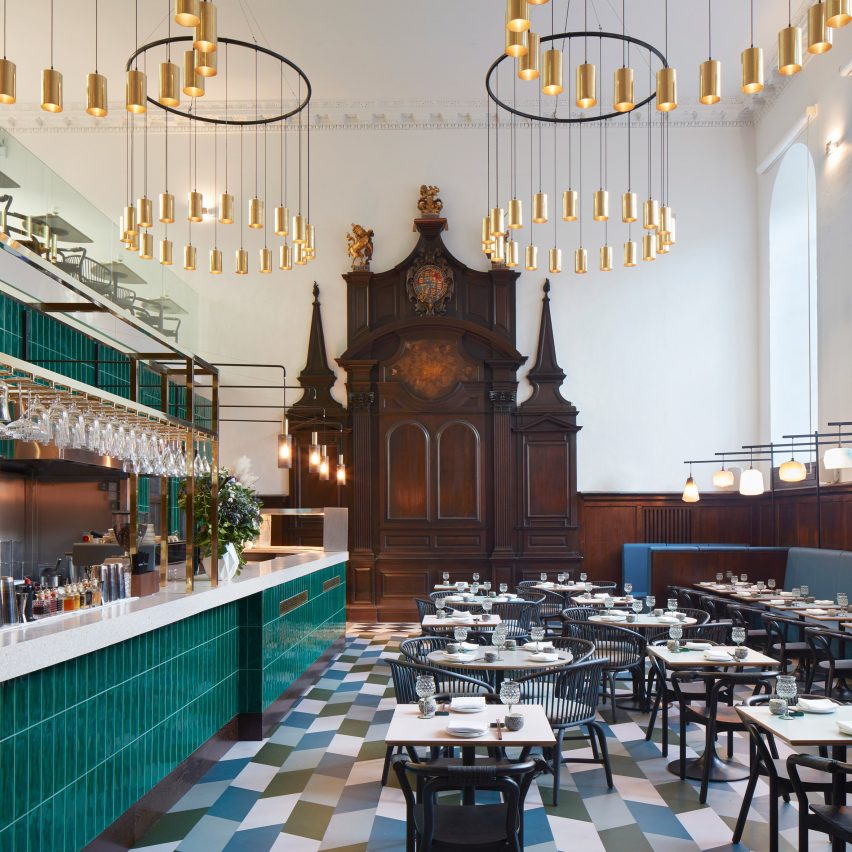
Architecture studio Michaelis Boyd introduced touches of brass and geometric pattern to a listed church in London to create a 1960s-inspired home for Cantonese eatery Duddell's.
Much like its Michelin-starred counterpart in Hong Kong, Duddell's London will act as a restaurant and gallery space, displaying collections of contemporary art pieces.
Find out more about Duddell's ›
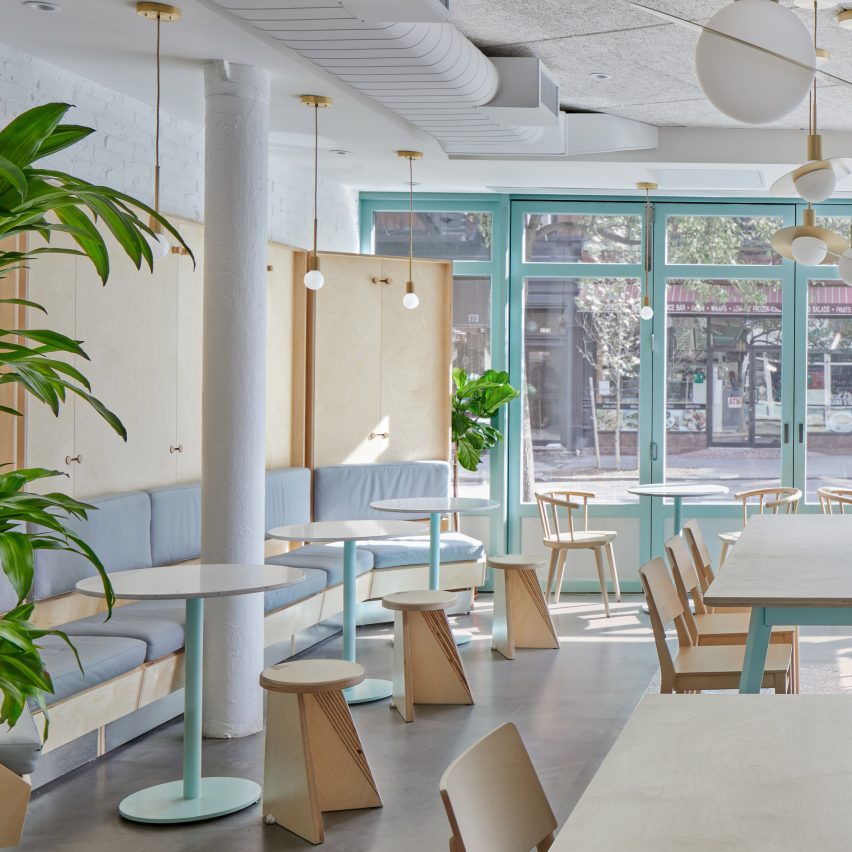
New York designer Xuhui Zhang chose minimal furnishings and mint green accents for this restaurant, as a conscious effort to redefine East Asian design.
The fast-casual cafe at the intersection of Bleeker and Sullivan streets features a simple colour palette and contemporary designs, which Zhang intended to honour her culinary heritage while showing it in a new light.
Find out more about Junzi Kitchen ›